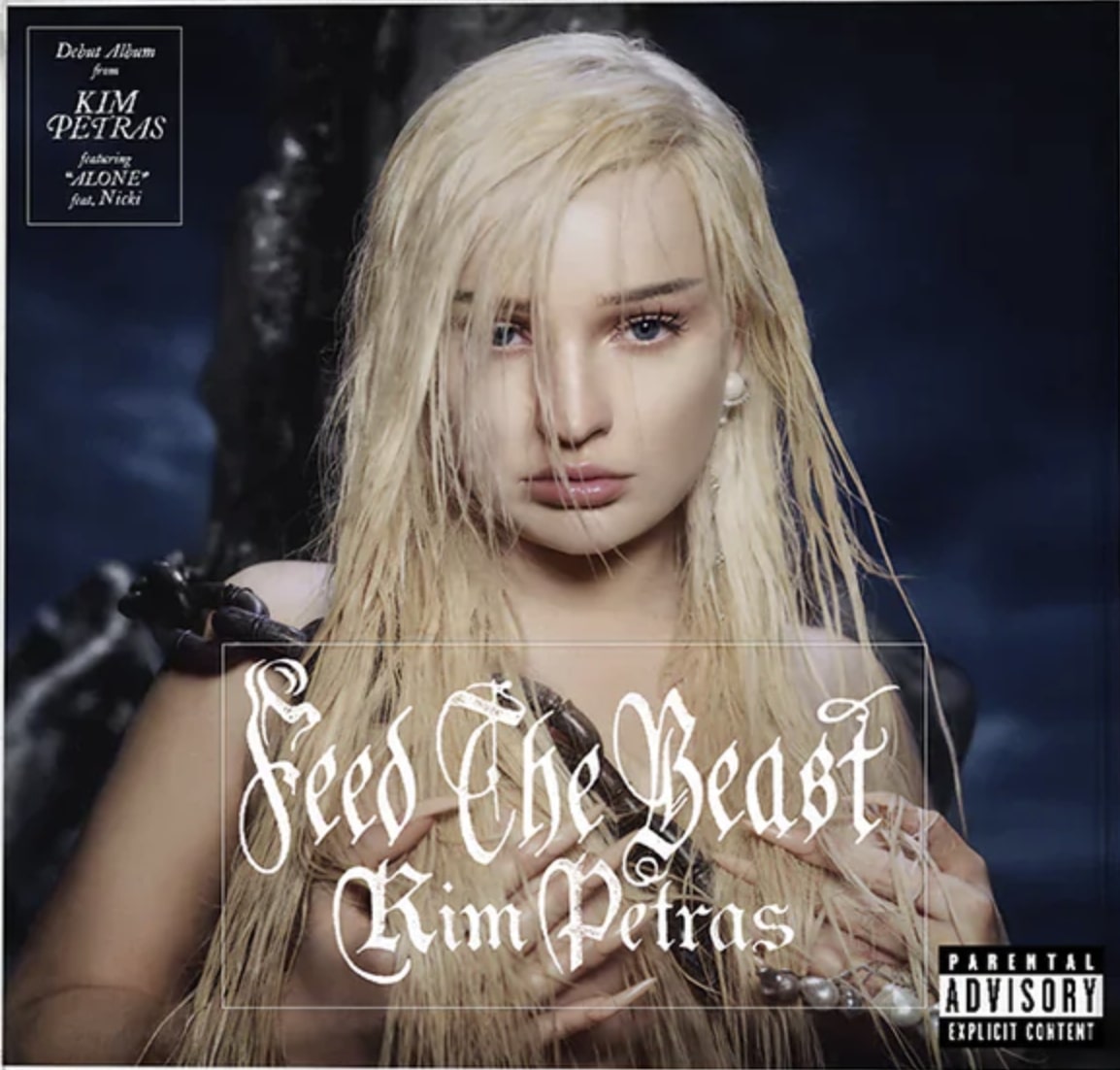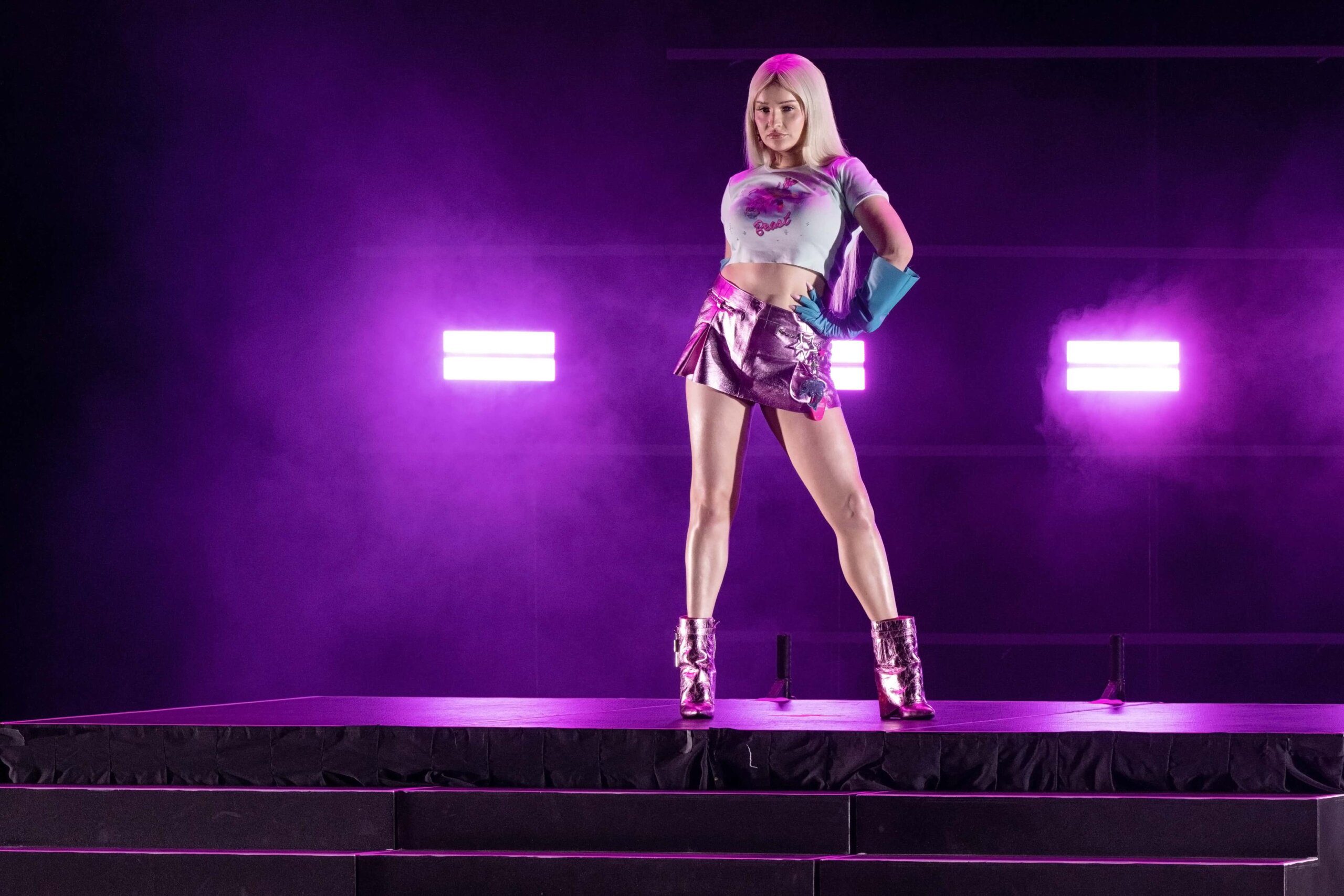Kim Petras has been training herself for global pop stardom from a young age. To anyone who’s witnessed her sheer determination, it’s no surprise that she’s finally broken through into near household-name status. What is unusual, though, is the long and winding path she took to get there.
From making headlines as a young trans girl in her native Germany, to launching her solo career with the splashy “I Don’t Want It at All” in 2017, to finally signing a major label deal with Republic Records in 2021, Petras has always followed her devotion to pure pop songcraft. In the late 2010s, when celebratory, queer-leaning dance-pop was out of vogue in the mainstream, a steady stream of sparkly singles made her a fixture in gay clubs worldwide.
Since then, she’s become a bona fide queer icon to some, and problematic figure to others. When “Unholy,” her Billboard Hot 100 chart-topping goth-pop megahit with Sam Smith, made her the first out trans woman to win a Grammy, her acceptance speech—where she gave thanks to the women who paved the way for her, including the late SOPHIE—was genuinely inspiring.
Less inspiring is her ongoing collaboration with Dr. Luke, pop-producer mogul and Kesha’s alleged abuser, which some have called a deal with the devil. I wrote a deep dive into the murky ethics of Dr. Luke’s ongoing industry presence in 2021; little has changed since, except that his long-running defamation case against Kesha was mutually settled last week.
Through all that, Petras has built her core fan base without specifically chasing true mainstream success. But when her finished studio album Problématique leaked in August last year, it was unceremoniously scrapped by her label. Her A&R representative told her to suck it up, “challenge yourself to the limit and go feed the beast.” She wrote a new set of songs, and by the time “Unholy” reached a billion streams, she’d never been better positioned to aim all the way for the top of the charts.
Billed as Petras’s first true studio album, Feed the Beast dives headfirst into hard-edged, icy electropop. The title track opens the album with a new mission statement: “It’s time to let me off the leash/ Come put your hands all over me/ Feed the beast!”
“Alone,” the lead single featuring Nicki Minaj, sets the tone for the album by being the least subtle song Petras has ever written. The track’s fusion of 1999 Eurodance, 2012 turbo-pop, and current trap-R&B has potential, but its blaring chorus—lifted wholesale from Alice Deejay’s “Better Off Alone”—is less a catchy hook than a blaring jackhammer.
“Everything I drop is a banger,” Petras sings in “uhoh”—and she’s not wrong. Feed the Beast’s 15 tracks are undeniably effective pop songs; they have TikTok-ready hooks, they’re competently crafted and all would mix well on the dancefloor.
But for the first time, Petras feels boxed in by her rigid song structures. Even Petras’s signature “woo ah!” hook, usually an expression of pure joy, feels perfunctory. Songs like “King of Hearts,” “uhoh,” “Claws” and the title track all feel like sketches yet to be filled in with her usual charisma and emotion.
Even the highlights, like the dramatic “Revelations,” the frothy synth-funk “Sex Talk” and the urgent synthpop of “Minute” and “Castle in the Sky,” fail to build any momentum. The tracklist feels scattershot. Toward the end of the album, the one song that does seize your attention is “brrr,” where Petras’s desperate delivery, crisp hooks and mechanical SOPHIE-inspired production are in perfect sync.
Only her voice, with her catchy, harsh tone and expansive range, sets these songs apart. She no doubt has much to prove, yet Feed the Beast is by far her least cohesive release, in a career characterized by deliberate intentionality. When recent projects by her peers like Ava Max and Bebe Rexha—solid pop B-listers with a handful of megahits—display significantly more vision, you know that something’s off in Petras’s camp.
At her best, Petras is instantly believable—she can win you over in seconds. Singles as recent as 2021’s “Malibu” and “Future Starts Now” are utterly effervescent, overflowing with warmth. You could even call it gender euphoria; they’re informed by her trans experiences, without needing lyrics that foreground her identity. In those songs, she sings her heart out, like she knows that joy is worth fighting for.
Since the rise of disco in the ’70s, and house and dance-pop in the ’80s, queer people have turned nightclubs into havens. A true queer anthem can be celebratory, affirming, escapist, all of the above. It can even change your life. What music can’t do, however, is rewrite the oft-hostile world around us, or the circumstances of its own creation.
There’s a kind of dark irony to Petras’s journey through the music industry. From 2017 onward, she was an independent recording artist with some funding from the digital distribution service AWAL, and a songwriting contract with Prescription Songs, the publishing house founded by Dr. Luke.
By 2021, Luke had quietly signed to Republic/Universal Records, and created a new imprint under them, Amigo Records. His first signing was, of course, his protegé Kim Petras. At the time, she said, “I’ve seen how labels are shelving people who make amazing music all the time. So it was scary, but I’m very happy with the decision and I love my team there.”
In a twist so awful that it was practically bound to happen once she’d signed away her independence, following the Problématique leak, the album was indefinitely shelved by the label in 2022. After hyping the album on social media for two years throughout the COVID-19 pandemic, she had a right to be upset. In quickly deleted tweets, she wrote, “It’s ok if u wanna listen to the leaks … I’m not getting to put out any music anyways I’m f—ed. I’m devastated idk how all of this happened and I just wanna quit.” She later followed up: “I hope you enjoy the songs truly. I made them for you guys so I hope you like them.”

With Petras’s approval, several assembled tracklists of Problématique still circulate on the internet. The album shares two tracks, “Revelations” and “Hit It from the Back” with Feed the Beast, but Problématique has a more deliberate, cruisy, mid-2000s Eurodisco feel. Its lighter touch immerses us in her world, and feels more like a reflection of the various sides of Petras’s personality than the sanded-down edges of Feed the Beast. In an alternate universe, Problématique would likely have debuted to far more positive reactions from fans and critics.
But ultimately, pop music, major labels and the streaming landscape are agnostic to quality, or a fan base’s level of devotion. Thanks to TikTok, a crossover hit can come out of nowhere. Sometimes, pop is about being a shameless opportunist, and finding ways to channel lightning into a bottle. Feed the Beast could still generate a big surprise hit, and get a new audience invested in her as something more than the featured artist on “Unholy,” or her Sports Illustrated cover and the predictable conservative backlash to both.
In the short term, her streaming numbers—whether impressive or disappointing—will point the way forward. But the question is, how does Kim Petras want to be remembered? For streams, TikTok views and her scattered debut album? Or like her idols, Madonna and Kylie Minogue, for breaking down barriers and creating a visionary body of work? Both her fans and critics know she has the potential. But on Feed the Beast, Petras is merely playing everyone else’s game.


 Why you can trust Xtra
Why you can trust Xtra


